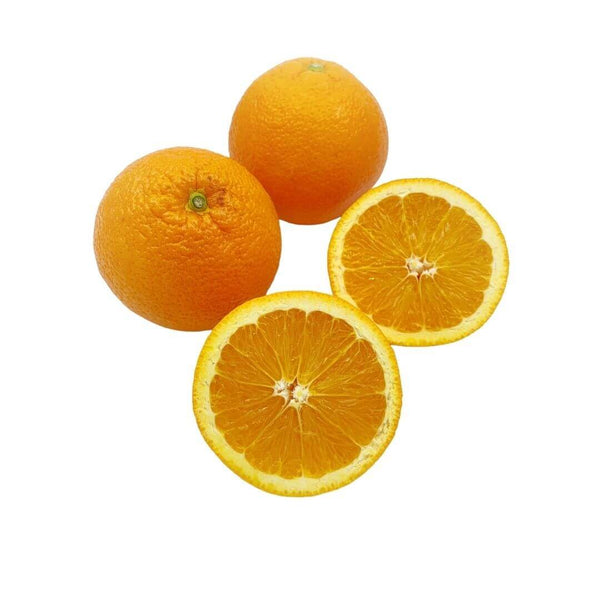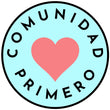
- 56 pieces
- Orange aka "Navel Orange", "Cheng", "橙"
- Orange is a round citrus fruit with smooth orange-colored skin. The skin is thick and fairly easy to peel. However, it is usually cut open horizontally to eat. The flesh is also orange in color and seedless. The taste is sweet and juicy with a crisp texture. Orange size 56 is especially popular before the Chinese New Year. Orange is available year-round.
Handling Tip
Selection
- Orange is firm and heavy for its size.
- Orange has a uniform orange color and is unblemished.
- Orange has a pleasant citrus fragrance.
- Avoid oranges with soft spots or feel spongy when you give them a light squeeze.
Storage
- Oranges sourced from Florida and Texas should be stored at 32°F - 33.8°F (0°C - 1°C) with a relative humidity of eighty-five to ninety percent and no mist. Oranges sourced from California and Arizona should be stored at 37.4°F - 46.4°F (3°C - 8°C) with a relative humidity of ninety to ninety-five percent and no mist.
- The typical shelf life is up to twelve weeks.
- Orange is an odor producer.
- Orange is sensitive to ethylene, a naturally occurring gas that regulates ripening. Orange should not be stored with high ethylene-producing products to avoid decays such as anthracnose and stem-end rot. Orange produces very little ethylene under optimal storage temperature but ethylene production increases for fruit stored then remove from chilling temperature.
- California and Arizona oranges are sensitive to chilling injury at storage below 37°F - 41°F (3°C - 5°C). Symptoms include pitting, brown stain, increased decay, internal discoloration, and off-flavors. Florida and Texas oranges rarely show chilling injury. The freezing point for the orange is 30°F (-1°C).
Nutrition Fact
Serving Size 1 medium orange (154g)
Amount Per Serving % Daily Value*
Calories 80
Calories from Fat 0
Total Fat 0g ............................................................................................ 0%
Saturated Fat 0g .......................................................................... 0%
Trans Fat 0g .................................................................................. 0%
Cholesterol 0mg .................................................................................. 0%
Sodium 0mg ......................................................................................... 0%
Total Carbohydrate 19g .................................................................... 6%
Dietary Fiber 3g ......................................................................... 12%
Sugar 14g
Protein 1g
Vitamin A .................................................................................................. 2%
Vitamin C .............................................................................................. 130%
Calcium ...................................................................................................... 6%
Iron ............................................................................................................. 0%
Potassium ................................................................................................. 7%
*The % Daily Value (DV) tells you how much a nutrient in a serving of food contributes to a daily diet 2,000 calories a day is used for general nutrition advice.
*Based on information published by FDA
Recommended for the ORANGE #56 (PREORDER)
Product Title
Vendor
$19.99 | $24.99
Product Title
Vendor
$19.99 | $24.99
Product Title
Vendor
$19.99 | $24.99
Product Title
Vendor







